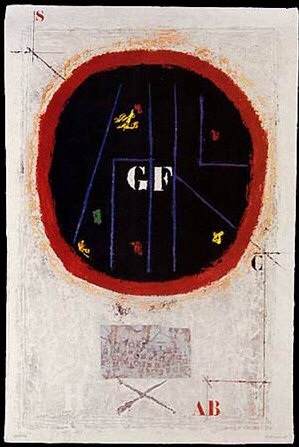Words are part of the problem. For example, many people use "God" to refer to some idea or thing or deity that either exists or doesn't, that has some qualities or doesn't, that you either believe in or don't. This is the "God" that can't possibly be Hitler, cancer, and earthquakes, because this "God" is supposed to be someone good, benevolent, and fair. But let's set aside all that, and simply inquire into what actually is -- say, this moment of experience. I don't mean "this moment" in a New Agey way, but really, this regular moment in ordinary mind, or as understood by a completely scientific materialism, with nothing vague or "spiritual" about it. Whatever's happening (listen, see, notice, measure, observe) -- this is what I am calling "Being."

And this is far closer to "God" than some projected preference about what the world should be like. YHVH, Judaism's primary divine name, doesn't even mean "God" -- 'Elohim' does. YHVH means What Is. "God" is not meant to be some Thing added on top of Being, or behind it, pulling strings like a master puppeteer; to the extent YHVH extends beyond Being, it is totally unknowable. To the extent YHVH fills Being, it is all there is -- not just the parts we like.
Consequently, having some relationship with "God" isn't about beliefs; it's about an attitude -- we might call it the Godification of Being. Reverence, gratitude, wonder, love -- surely these things matter far more than whether this or that historical event happened in the past. Suppose the Red Sea never parted, but you still feel a sense of joy, gratitude, and moral obligation to the world. Does it matter whether there was a high tide three thousand years ago in Egypt? Or, on the other hand, suppose it did part, and you believe it did, but you don't care, and live your life cruelly, selfishly, and without an ounce of human wonder. Does your belief matter, in any way? Even according to the scriptures of religion themselves?
In my religious tradition, at least, even as it is interpreted by rabbis with whom I do not at all agree, belief is only important because it inspires attitude and action. For myself, I don't even mind if the belief is absent -- as long as it is replaced by serious practices which cultivate compassion and the other tools needed for living skillfully in the relative world of apparent good, evil, choice, and responsibility. If you take away yirah, the fear and reverence that comes from believing in an omnipotent deity, then you've got actually to work to replace it with ahavah, and that means meditation practice, or art practice, or serious social engagement - or some other practice that wakes you up out of selfishness and into the world.
In the end, whether we label Being (YHVH) as God (Elohim) or not is optional. It's a choice, to incline of the mind to cultivate love, reverence, connection, personal relationship, gratitude, value, ethics, and so on, and to give Being the name of God. If relating to Being in a personal way resonates with your own intimate experience of it, if it causes you to love more, and if it bridges the gap between the known and the unknowable, then it can be the most useful projection ever dreamed. But God is not merely "what we like" written in capital letters. If the word God connotes such a thing, some figure within the reality of Being, or some state of affairs in which you do or don't believe, or which you do or don't prefer -- then, please, smash that idol and come to the truth of what is.

November, 2005
October, 2005
September, 2005
July, 2005
On meditation and Judaism
July, 2005
April, 2005
March, 2005
On the anthropology of contemplative practice
February, 2005
A bereaved mother, a rabbi, and a therapist look at dark emotions
December, 2004
Notes from and after retreat
...and what to do about it
February, 2004
February, 2003



The Old/New Jewish Culture
Mordecai Drache
Brodsky Begins
Adam Mansbach
A JuBu's Passage to India
Rachel Barenblat
Hitler and God
Jay Michaelson
Winter Light Promises
Jacob Staub
Beyond Belief
Joshua Furst
Archive
Our 820 Back Pages
Zeek in Print
Subscribe now!
About Zeek
Mailing List
Contact Us
Subscribe
Tech Support
Links
From previous issues:
To Ohio and Back
Israel on Campus: Creating Dialogue
Jealousy
Avi Steinberg
Samuel Hayim Brody and Zach Gelman
Matt Morris
 Email us your comments
Email us your comments